Many people in Vietnam, including middle-aged and older workers, are struggling to find work during Tet (Lunar New Year) due to unemployment caused by the pandemic, and are resorting to seasonal jobs to make ends meet.

The Finance Secretary has stated that the Budget for 2024-25 maintains high levels of investment, with a focus on macroeconomic stability, and that the level of capital expenditure is sufficient to sustain the current growth rate regardless of private sector investments.

Houthi terror attacks on ships in the Red Sea could jeopardize Chancellor Jeremy Hunt's plans for big tax cuts in the Budget, as the attacks have caused the cost of container vessels to skyrocket, raising concerns about inflation.

Finance Minister Nirmala Sitharaman discusses the state of the economy and the government's priorities, including plans for economic growth, job creation, measuring rural transformation, and improving data collection, during a post-budget press conference.

Tech workers in Silicon Valley are feeling despondent and confused as layoffs continue despite a booming job market, with companies like Google, Amazon, and Microsoft making significant cuts and executives focusing on increasing profits by cutting high-paid workers. The tech industry, once highly coveted, has become less secure and attractive to many workers.
The electric power regulator NEPRA is set to determine a rebased tariff for the next financial year, considering the total revenue requirement and the circular debt management plan, while taking into account factors such as electricity sales growth, currency exchange rates, inflation, and energy purchase price.

India's trade deficit with China continues to grow despite measures taken to address it, posing a risk to India's economic and strategic interests.

Bangladesh has struggled to attract the desired amount of foreign direct investment (FDI) despite its efforts, ranking fourth among South Asian countries in terms of FDI as a percentage of GDP and facing challenges such as inadequate infrastructure and policy uncertainties.
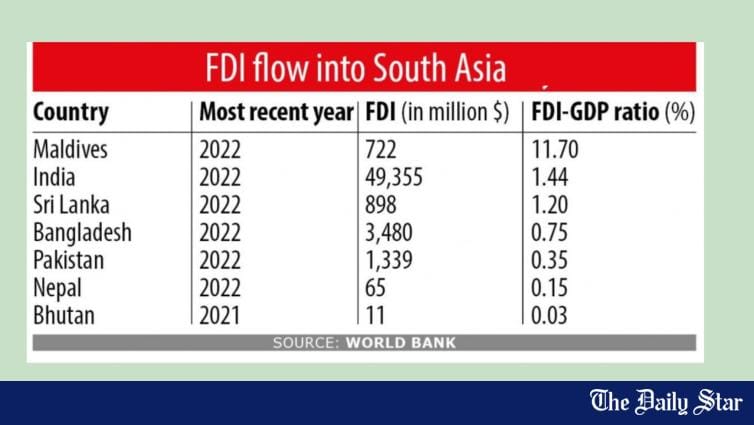
The inclusion of Saudi Arabia in the BRICS alliance has led to a combined wealth of $45 trillion, surpassing the G7 collective and positioning the bloc as a global economic leader.

Sri Lanka seeks to boost its economy through a Free Trade Agreement with Thailand, aiming to enhance market opportunities and revive its battered economy after a severe financial crisis.

BRICS countries are planning to launch their own credit rating agencies to counter the dominance of US credit rating agencies, which have been criticized for their bias against developing countries.
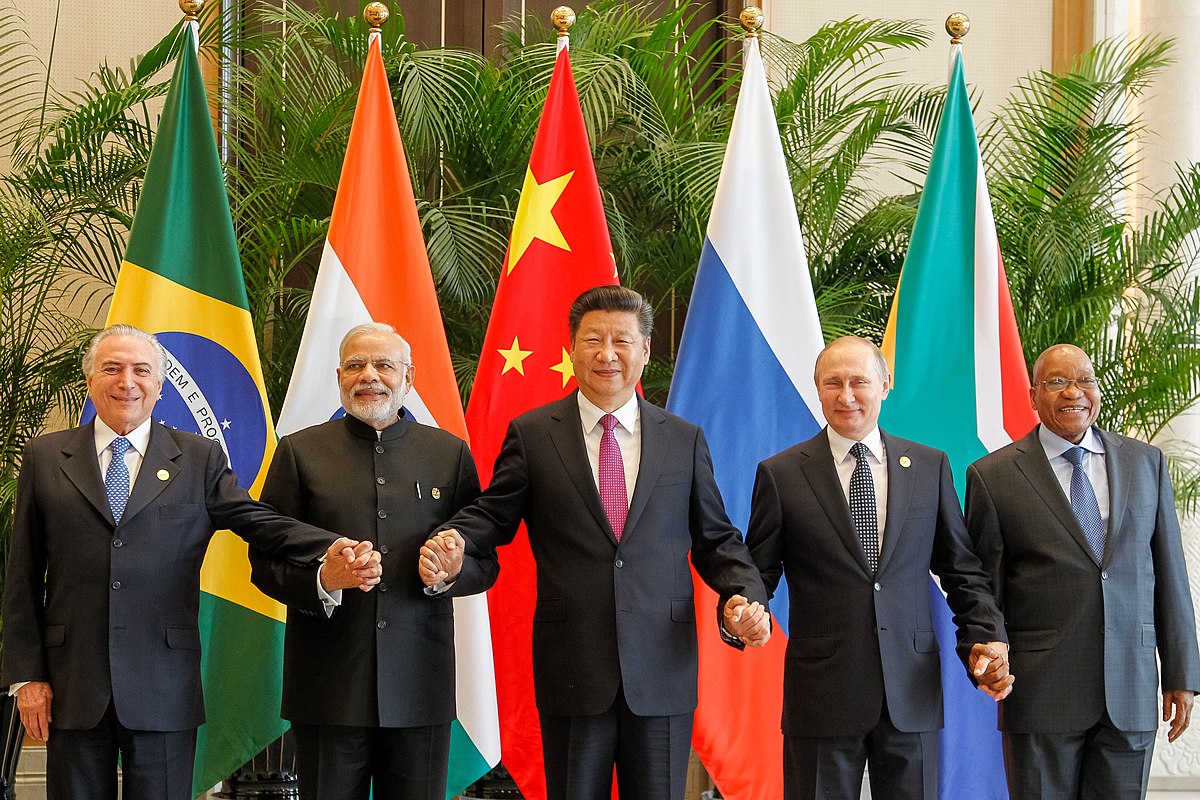
China's booming e-commerce industry, driven by small-item trade and the de minimis rule that allows duty-free entry for packages under $800, is at risk of financial loss as the US considers overhauling the trade rule with bipartisan bills calling for lower thresholds or closure of the provision to prevent shipments from countries like China from benefiting.

Labour's tax proposals, including a windfall tax on oil and gas profits, could render three-quarters of new projects in the North Sea economically unviable, which would lead to a decline in investment and could impact the UK's energy reliance on oil and gas.

Protests by farmers across Europe have highlighted the struggles they face due to inflation, high interest rates, and volatile energy prices, resulting in imported produce and high prices for French consumers. Governments have promised financial support for the farming sector, but farmers are still faced with rising costs and uncertainty.

Germany's economy is struggling due to the energy crisis, interest rates, and structural issues, such as aging infrastructure and a labor shortage, with exports and consumer spending declining, leading to concerns about recession and political unrest.
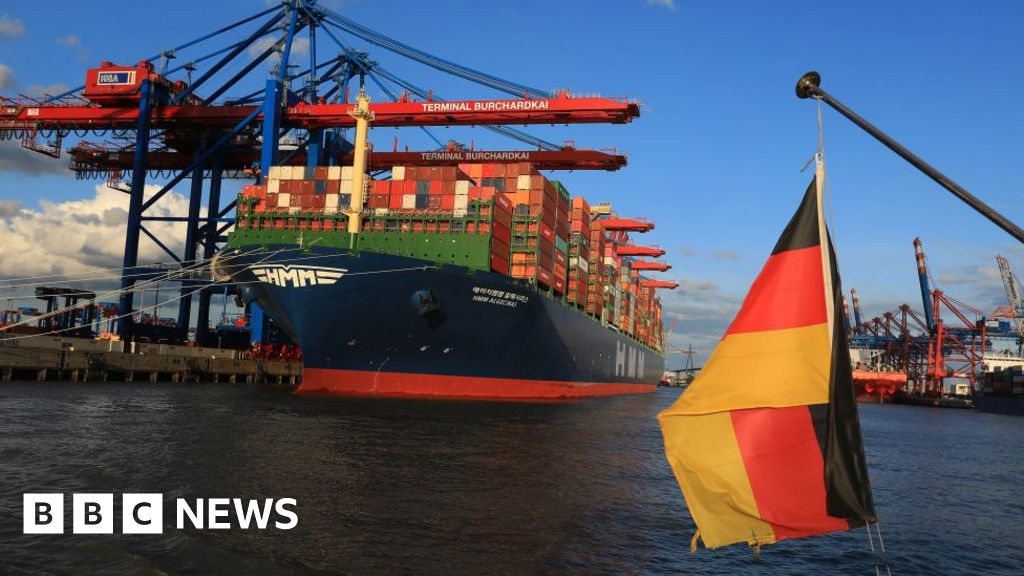
The income levels for America's lower, middle, and upper classes are defined, with the median household income at $74,580 and the median net worth for each class ranging from $12,000 to $805,400.

Canada ranks as one of the cheapest countries in North America to feed a dog, with annual costs just two-thirds those in the United States and lower than any other country except the Dominican Republic.

Britain is in need of a new fiscal framework to address its growing public debt, but neither the Conservative nor Labour government show any signs of applying the necessary restraint, putting the country on a path to debt-addled oblivion.

Turkey's central bank chief, Hafize Gaye Erkan, resigns amid accusations of a reputation assassination campaign, with the government swiftly appointing a new governor and stating that the change does not reflect a policy shift, as the country continues to battle high inflation rates of around 65 percent annually.

Dubai has emerged as a major player in the tourism industry, but its Gulf neighbors, particularly Saudi Arabia, are now aiming to diversify their economies and emulate Dubai's success by investing in tourism and aviation. However, Dubai still maintains a significant advantage with its infrastructure and aspirational appeal, while Saudi Arabia faces challenges in establishing its global branding and catching up with Dubai's tourism industry.
High housing costs have been identified as the main culprit for inflation not reaching the desired target of 2%, and experts are still waiting for housing inflation to fall, with uncertainty surrounding when this will happen due to discrepancies in how the government measures rent and home prices compared to market conditions and local market influences.
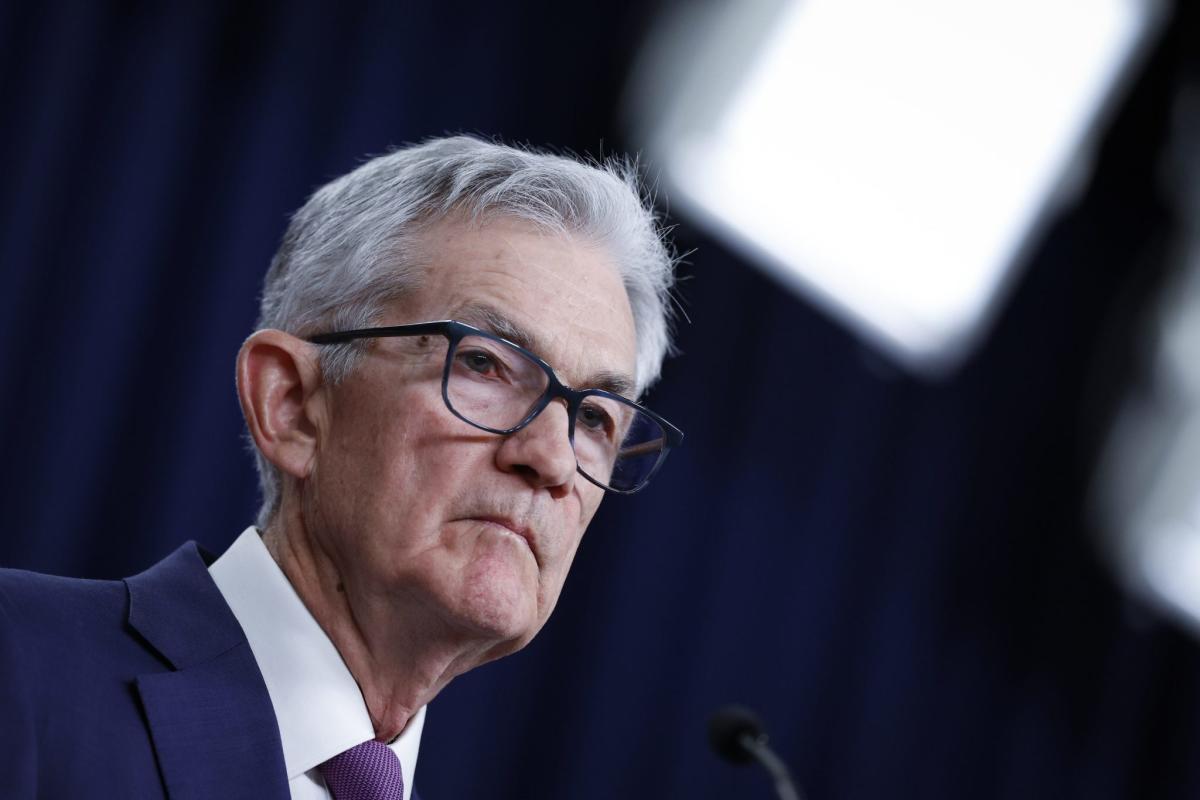
The European Central Bank may need to respond to slowing inflation by lowering interest rates, according to Mario Centeno, a Governing Council member of the ECB.

The collapse of the Selfridges tycoon's empire, owned by Austrian billionaire Rene Benko, comes at a bad time for Germany's economy as it grapples with a recession and a property crunch. Benko's company, Signa Holding, was heavily supported by German financial institutions and the fallout threatens the country's political and business elites.

Finance Secretary TV Somanathan stated that India has enough resources to sustain its current growth rate and private capital expenditure can further increase it, highlighting the significant 11% increase in capital spending for FY25, despite lower nominal GDP growth.
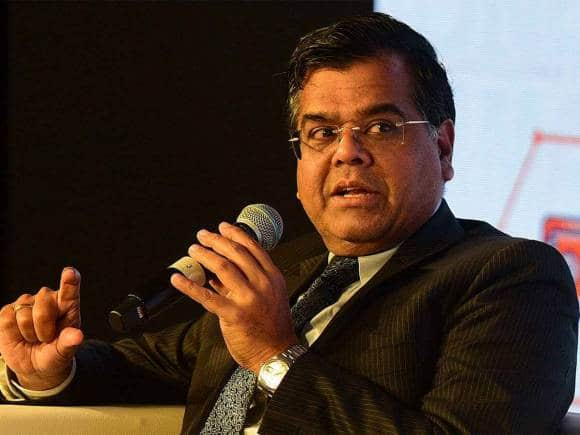
India's Finance Minister, Nirmala Sitharaman, stated in an interview that the government has been executing the principle of empowerment, "Sabka Saath, Sabka Vishwas, Sabka Vikas," in every way, and a white paper will be released soon detailing the "mismanagement" of the economy during the previous government's tenure.
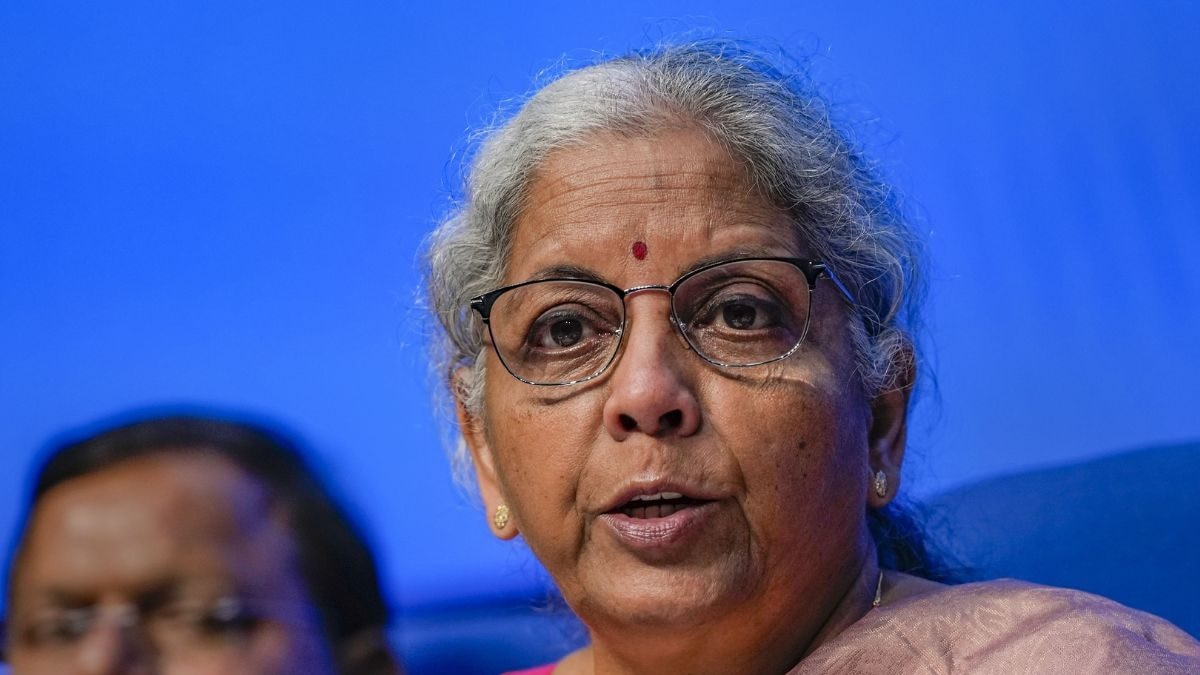
French farmers and households are hit by various factors, including inflation, high interest rates, and volatile energy prices, leading to protests and a preference for cheaper imported produce over French-grown food.
The Power Division in Pakistan plans to reduce the subsidy by 25% for domestic consumers, with a particular focus on reducing the subsidy for those using less than 400 units of electricity, in an effort to stimulate economic growth and align with IMF recommendations.

The United States has become the world's top exporter of liquefied natural gas (LNG) in just eight years, but concerns about the impact on climate change have led the Biden administration to pause the permitting process for new LNG facilities, with questions arising about the need for more natural gas as countries transition away from fossil fuels. However, the US is still on track to nearly double its export capacity by 2027, with Europe and fast-growing Asian countries being the main importers, despite criticisms about the environmental consequences of increased gas transportation and use.

Despite recent improvements in inflation, 72% of Americans feel most affected by it when grocery shopping, with prices increasing by 20% in the last three years, resulting in frustration and anger amongst shoppers.
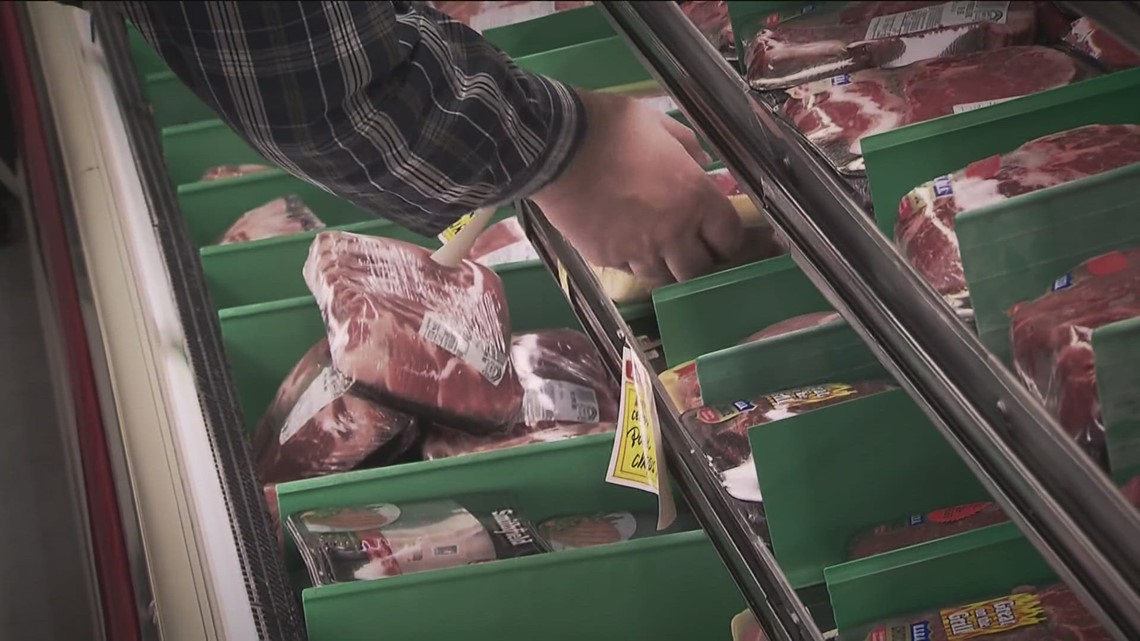
The national debt of the US has surpassed $100,000 per citizen, leading to a growing deficit and a suggestion from Former Treasury Secretary Robert Rubin that raising taxes may be the only solution to the financial crisis.

Pork demand in China is weak, even during the peak season of Lunar New Year, due to declining wages and oversupply, reflecting the struggles of the country's economy.

The concept of a circular economy focuses on the reuse and regeneration of materials to promote sustainability and minimize waste, but global progress in implementing this model has been unsatisfactory and threatens planetary boundaries.

Daily Kos is showing support for the Black community and provides ways to get involved in the upcoming elections.

The U.S. labor market added 353,000 jobs last month, exceeding expectations and indicating a resilient economy; however, the Federal Reserve has stated that it is too soon to lower interest rates.

Daily Kos is taking action to support the Black community and encourages involvement in the upcoming elections.

Chinese manufacturers are increasingly investing in Mexico as an alternate route to the US market and to avoid tariffs, with exports of auto components and batteries to Mexico surging in recent years, and Chinese direct investment in Mexico doubling in 2018; however, challenges such as higher costs and rule-of-law issues remain for Chinese companies looking to establish a presence in Mexico.
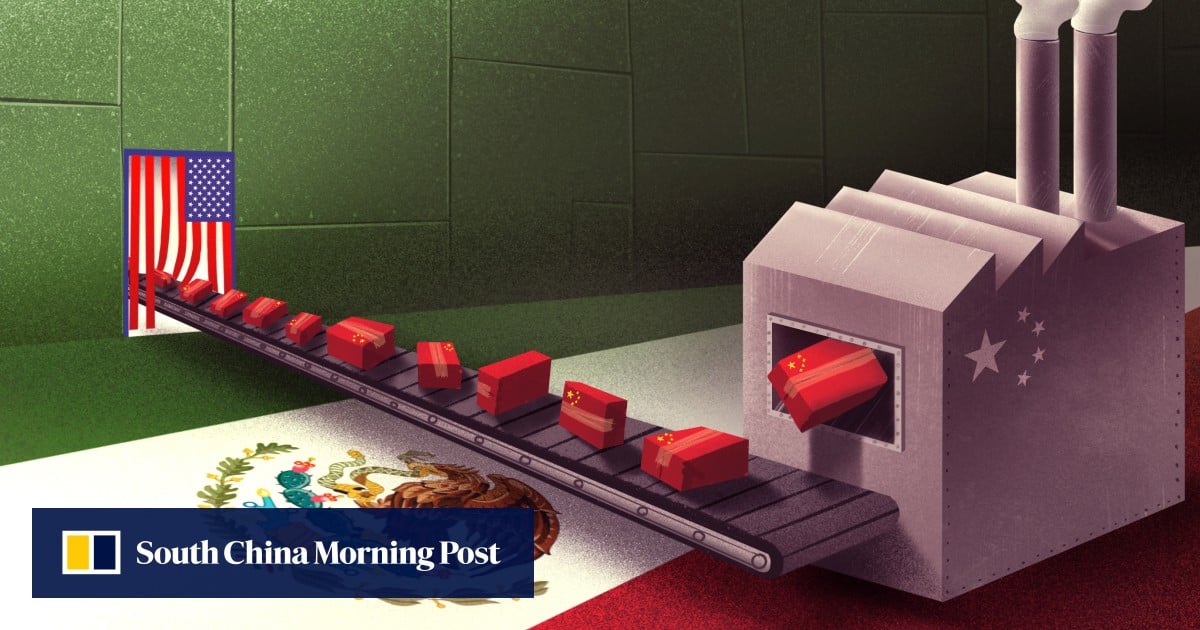
Robust U.S. economic data is challenging the belief that strong growth alone can continue to drive stocks higher, especially if the Federal Reserve delivers less monetary-policy easing than expected.

The U.S. economy is defying expectations of a slowdown, with experts speculating that low fixed-rate mortgages and increased consumer spending may be fueling rapid economic growth. Homeowners with low mortgage rates have been shielded from interest rate hikes, while businesses have had time to adjust to the Federal Reserve's plans to raise rates. Additionally, strong job data and easing inflationary pressures have led to rising real wages, contributing to economic growth.
:max_bytes(150000):strip_icc()/GettyImages-1973196081-cade5aeeec334a6dba27482f7b030961.jpg)
Fatih Karahan, a former senior economist at Amazon, has been appointed as the new head of Turkey's central bank by President Recep Tayyip Erdogan, following the resignation of Hafize Gaye Erkan after less than a year in office. This move signals Erdogan's commitment to market economics and stabilizing the country's economy.

The Biden administration is urging grocery chains to lower prices on goods like milk, eggs, and bread, as part of an effort to address concerns about high costs and pass on savings to consumers.

Despite concerns about inflation, the US economy is showing signs of strength, with robust job growth and consumer confidence surging, potentially bolstering President Joe Biden's chances for reelection.

The International Monetary Fund has raised its growth estimates for China's economy, expecting it to recover strongly over the next year.
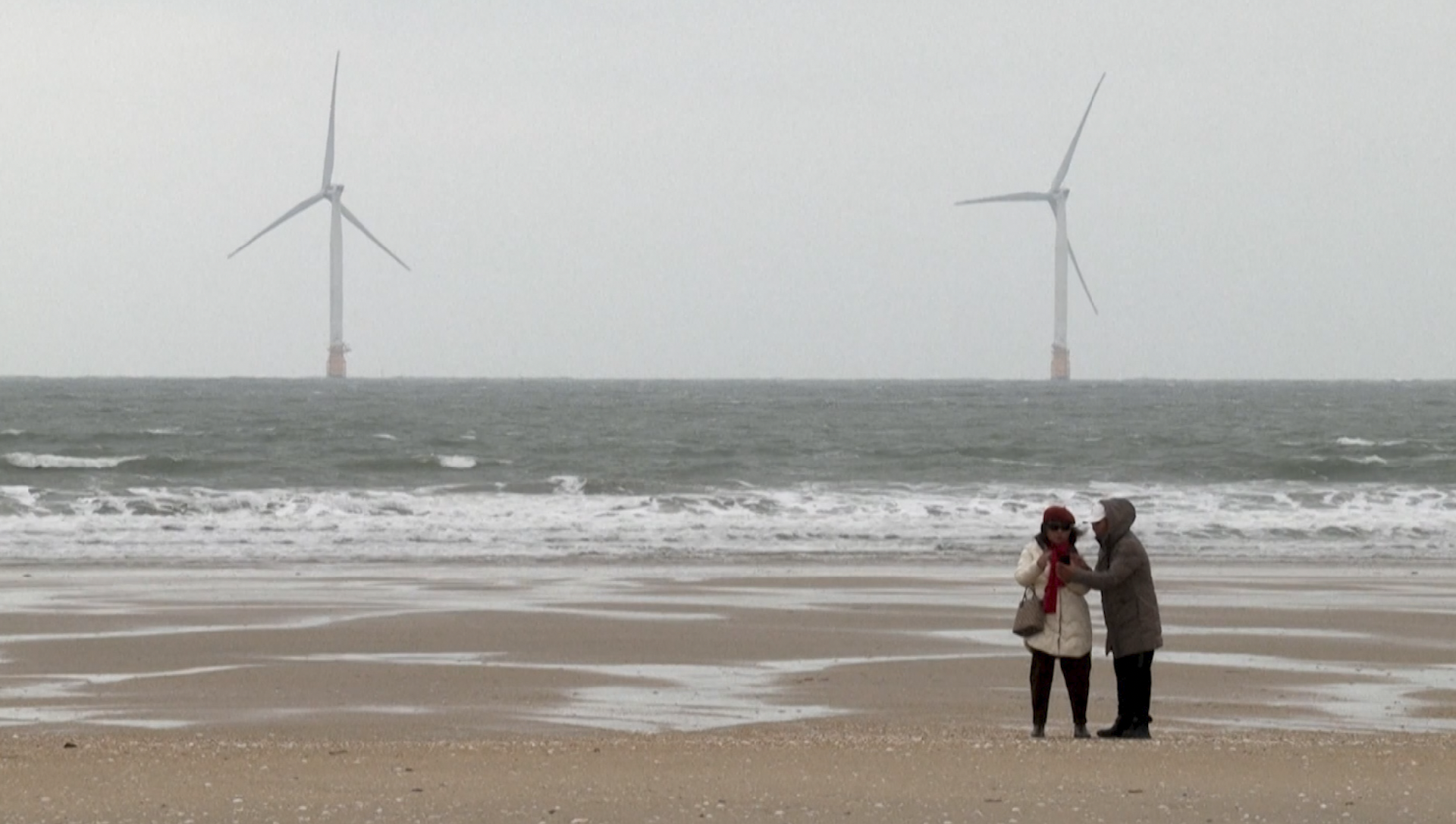
The anticipation of a 0.25-percentage-point interest rate cut by the U.S. Federal Reserve is causing significant volatility in global stock markets, but ultimately, the long-term performance of stocks is driven by company profits and earnings growth, rather than short-term sentiment.
Fox News host Dagen McDowell cautions Republicans against running on the economy in the upcoming election, as she believes it is in good shape and voters are more concerned about immigration.

Business insolvencies in Canada surged by more than 41% in 2023, with the total number of insolvencies up by 23.6%, highlighting a tough economic climate for businesses amid low economic activity and the challenges of pandemic loan repayments.

US employers are taking longer to hire and posting fewer jobs, making job hunts more difficult despite the low unemployment rate and modest layoffs, with the hiring process taking an average of 44.5 days, according to Josh Bersin Research.
The U.S. jobs report for January shocks Wall Street with a surge of 353,000 employment.

Consumers' pessimism about the US economy is starting to dissipate due to strong economic data, including job gains and falling inflation rates, potentially benefitting President Biden in his reelection campaign.

Germany's economy has shown no growth in almost two years, with infrastructure in need of modernization, strikes on the railways, and protests causing disruption in Berlin, but while the country's ruling coalition is in serious trouble, it is not experiencing a collapse comparable to historical economic crises, and there is potential for recovery if Germany addresses its structural problems and makes necessary changes to its business model.

The US is experiencing a shortage of cows, resulting in higher beef prices, due to factors such as drought, high input costs, and inflation.
